As our global awareness of the environmental impact of plastic waste continues to grow, the need for eco-friendly alternatives to everyday items becomes increasingly urgent. One such item that has a significant impact on our planet is the plastic garbage bag. These bags not only contribute to plastic pollution but also take hundreds of years to decompose, further exacerbating the problem.
However, with innovative advancements in waste management, researchers and companies are actively exploring alternative materials and designs to replace plastic garbage bags. These new solutions aim to reduce the harm caused to our environment while still providing the functionality and convenience we rely on.
One promising alternative is the development of compostable garbage bags made from organic materials such as cornstarch, sugarcane, or biodegradable polymers. These bags are designed to break down naturally over time, leaving behind no harmful residues or micro-plastics. Not only do they have a smaller environmental footprint, but they also encourage better waste sorting and composting practices.
Another avenue being explored is the use of reusable and washable fabric bags for waste management. These bags, made from durable materials like cotton or nylon, can withstand multiple uses and are easy to clean. By encouraging households and businesses to switch to reusable options, we can significantly reduce the amount of plastic waste generated.
The future of waste management looks promising as more sustainable and eco-friendly materials are being developed. The transition away from plastic garbage bags may not happen overnight, but with continued research and awareness, we can pave the way for a greener future.
- Why Plastic Garbage Bags are a Problem
- The Urgency to Find Eco-Friendly Alternatives
- Research and Development of Sustainable Options
- The Rise of Compostable Garbage Bags
- What are Compostable Garbage Bags?
- Advantages of Compostable Garbage Bags
- Q&A:
- What are some eco-friendly alternatives to plastic garbage bags?
- Are eco-friendly alternatives to plastic garbage bags as effective in terms of containing odors and leaks?
- Do eco-friendly alternatives to plastic garbage bags cost more?
- Can reusable bags replace plastic garbage bags entirely?
Why Plastic Garbage Bags are a Problem
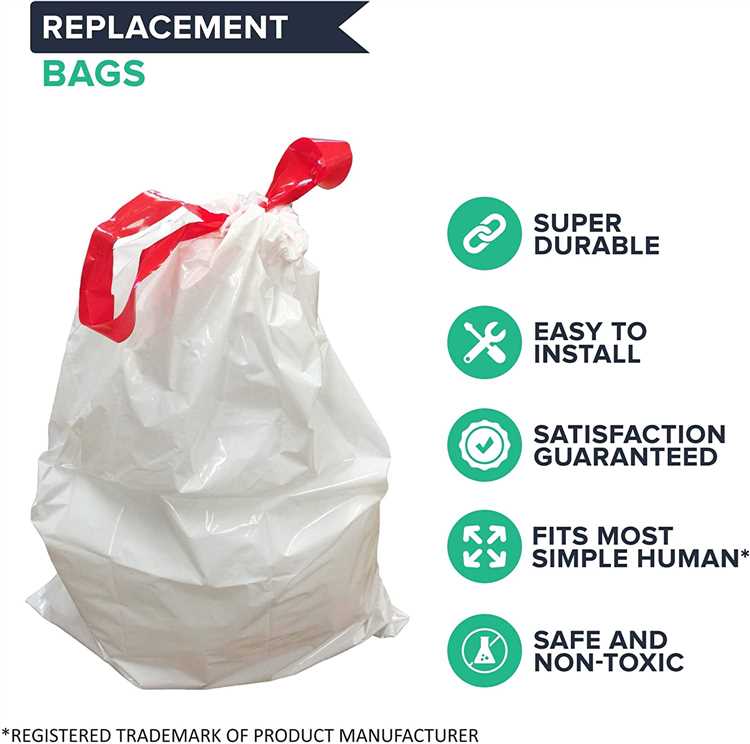
Plastic garbage bags have become an integral part of our daily lives, but they are also a significant environmental problem.
Plastic, especially single-use plastics like garbage bags, is causing significant harm to our planet. These bags are made from non-biodegradable materials that do not break down easily, leading to long-term pollution.
When plastic garbage bags are thrown away, they often end up in landfills, where they take hundreds of years to decompose. This means that the bags we use today will continue to exist for generations to come. The accumulation of plastic waste in landfills contributes to soil contamination and poses a threat to wildlife.
Plastic garbage bags also contribute to plastic pollution in our oceans.
When plastic bags are not properly disposed of and end up in rivers or coastal areas, they can be carried by water currents and eventually end up in the ocean. Once in the marine environment, plastic bags pose a significant threat to marine life. Marine animals often mistake plastic bags for food and ingest them, which can lead to suffocation and starvation.
In addition to their impact on the environment, plastic garbage bags also contribute to the depletion of non-renewable resources. The production of plastic bags requires the extraction of fossil fuels, which not only contributes to greenhouse gas emissions but also depletes valuable resources.
In conclusion, plastic garbage bags are a problem due to their non-biodegradable nature, contribution to land and ocean pollution, and depletion of non-renewable resources. It is essential to find eco-friendly alternatives to plastic garbage bags to protect the environment and ensure a sustainable future.
The Urgency to Find Eco-Friendly Alternatives
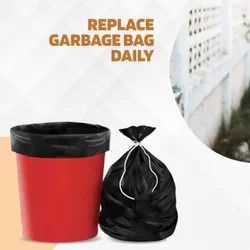
Plastic garbage bags have long been a convenient and widely-used solution for waste management. However, their negative impact on the environment cannot be ignored. These bags take hundreds of years to decompose, contributing to the ever-growing plastic pollution crisis. The urgency to find eco-friendly alternatives is greater than ever before.
It is estimated that over 8.3 billion metric tons of plastic waste have been produced globally since the 1950s, with a significant portion ending up in landfills or polluting the oceans. This constant accumulation of plastic waste has detrimental effects on ecosystems, wildlife, and human health.
Fortunately, advances in technology and a growing awareness of the need for sustainable practices have paved the way for the development of eco-friendly alternatives to plastic garbage bags. These alternatives aim to provide similar functionality while minimizing the environmental impact.
One such alternative is compostable bags made from biodegradable materials such as plant starches, vegetable oils, or polylactic acid (PLA). These bags break down naturally and can be safely composted along with organic waste. By diverting these bags from landfills, the amount of plastic waste entering the environment can be significantly reduced.
Another option is reusable cloth bags, which are often made from natural fibers like cotton or hemp. These bags can be washed and used multiple times, reducing the need for single-use plastic bags. They provide a durable and sustainable solution, with the added benefit of reducing demand for oil, which is used in the production of plastic bags.
The urgency to find eco-friendly alternatives to plastic garbage bags cannot be overstated. It is essential for individuals, businesses, and governments to actively seek out and support these alternatives to minimize the environmental impact of waste management. By making conscious choices and adopting sustainable practices, we can work towards a cleaner and healthier planet for future generations.
Research and Development of Sustainable Options
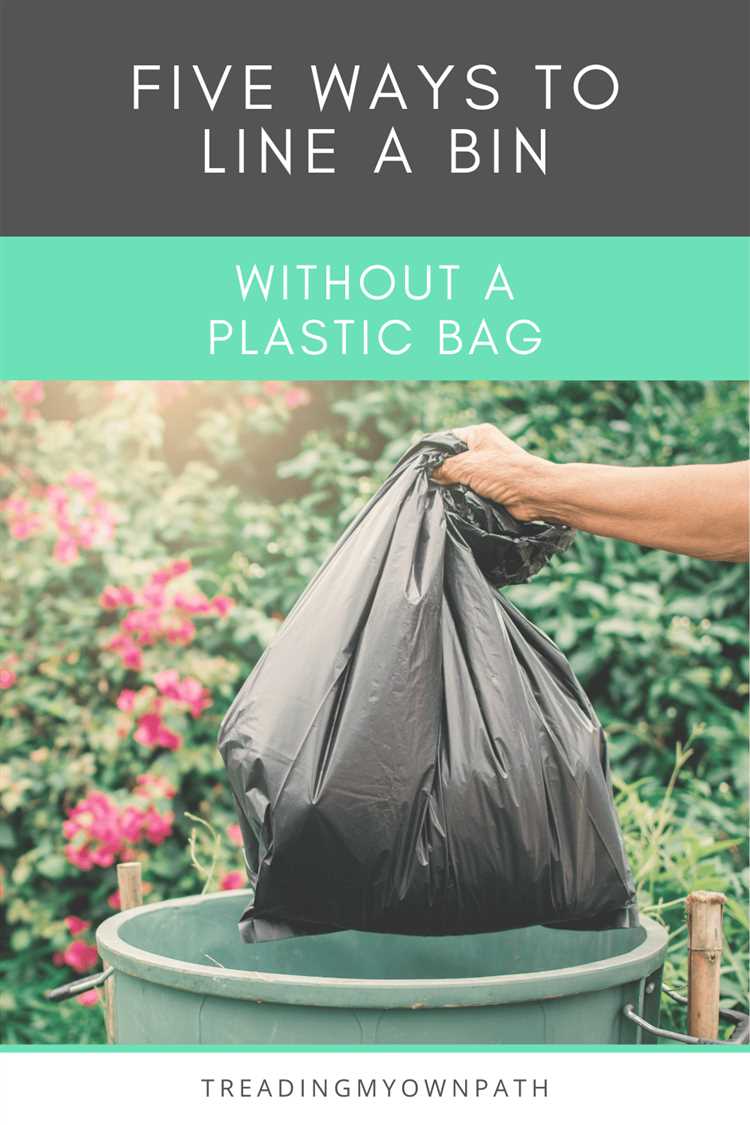
As the world becomes increasingly aware of the negative impact of plastic waste on the environment, there is a growing need for sustainable options to replace plastic garbage bags. In response to this need, researchers and innovators are actively working on developing eco-friendly alternatives.
One promising avenue for sustainable waste management is the use of biodegradable materials. Biodegradable garbage bags are made from materials that can easily break down in the natural environment, such as plant-based polymers or bio-based plastics. These materials are designed to degrade into non-toxic substances, reducing the amount of waste that ends up in landfills or the ocean.
Another area of research involves the use of compostable materials. Compostable garbage bags are made from organic materials that can be broken down through composting, a process that turns organic matter into nutrient-rich soil. These bags eliminate the need for separate sorting and can be disposed of in organic waste bins, reducing contamination in recycling streams.
- One innovative option being explored is the use of fungi-based materials. Researchers have found that certain types of fungi can be grown to create strong and flexible materials that can be used as an alternative to plastic. These fungi-based materials can be molded into various shapes and sizes, making them suitable for different types of garbage bags.
- Researchers are also investigating the use of cellulose-based materials derived from plants. Cellulose is the main structural component of plants and can be extracted to create biodegradable and compostable plastics. These materials have shown promise in terms of strength and flexibility, making them a viable alternative to traditional plastic garbage bags.
- Furthermore, scientists are exploring the use of nanotechnology to develop sustainable options for waste management. Nanomaterials have unique properties that can be harnessed to create environmentally-friendly garbage bags. For example, nanocellulose-based materials have been developed that are both biodegradable and have high tensile strength, making them ideal for containing waste.
Overall, research and development efforts in the field of sustainable waste management are paving the way for eco-friendly alternatives to replace plastic garbage bags. As these options continue to evolve, it is important for consumers, businesses, and governments to support and adopt these sustainable solutions in order to minimize the impact of plastic waste on our planet.
The Rise of Compostable Garbage Bags
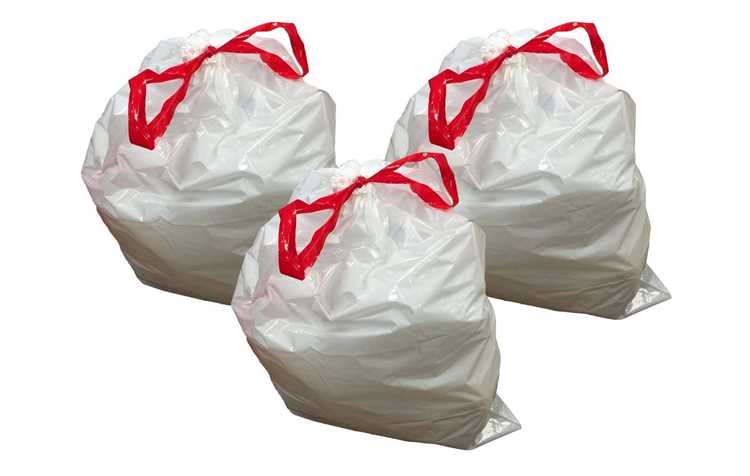
Plastic garbage bags have long been a staple in waste management, but their negative environmental impact is becoming increasingly apparent. As people are becoming more conscious about their carbon footprint and the need to reduce plastic waste, compostable garbage bags are gaining popularity as a sustainable alternative.
What are Compostable Garbage Bags?
Compostable garbage bags are made from plant-based materials, such as cornstarch, vegetable oils, or plant fibers. They are designed to break down naturally in composting systems, providing a way to dispose of waste without contributing to landfill pollution. These bags are not only biodegradable but also non-toxic, making them a safer choice for both humans and the environment.
Advantages of Compostable Garbage Bags
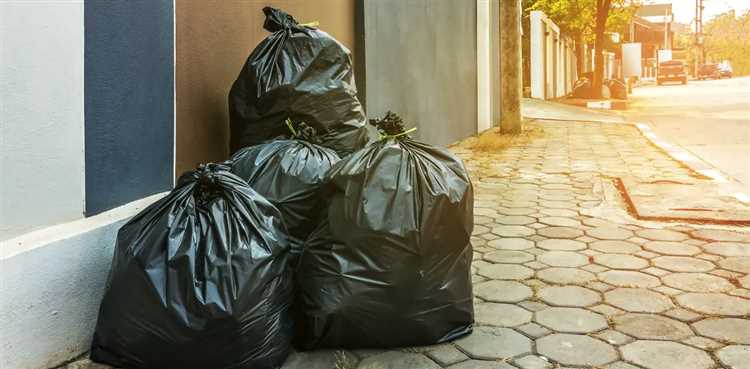
There are several advantages to using compostable garbage bags:
- Reduced plastic waste: By using compostable bags, you can significantly lower your plastic consumption and ultimately reduce plastic waste in landfills and oceans.
- Less pollution: As compostable bags break down naturally, they release fewer greenhouse gases and harmful chemicals compared to traditional plastic bags, contributing to cleaner air and water.
- Improved soil quality: When compostable bags decompose, they add organic matter to soil, helping to enhance its fertility and structure.
- Support for sustainable practices: Choosing compostable bags supports the shift towards more sustainable waste management practices and encourages the development of environmentally-friendly alternatives.
While compostable garbage bags offer many benefits, it’s essential to note that they need certain conditions to break down properly. Composting facilities that maintain proper temperature, humidity, and aeration are necessary for the breakdown process to be successful.
As the demand for eco-friendly garbage bag options continues to grow, more companies are entering the market, offering compostable options to consumers. Additionally, governments and municipalities are implementing regulations and incentives to encourage the use of compostable bags as part of broader waste management strategies.
Overall, the rise of compostable garbage bags marks a promising step towards a more sustainable future. By choosing compostable options, individuals can play an active role in reducing plastic waste and supporting environmentally-friendly waste management practices.
Q&A:
What are some eco-friendly alternatives to plastic garbage bags?
Some eco-friendly alternatives to plastic garbage bags include compostable bags made from plant-based materials like cornstarch, biodegradable bags made from materials like recycled paper or natural fibers, and reusable bags made from durable materials like canvas.
Are eco-friendly alternatives to plastic garbage bags as effective in terms of containing odors and leaks?
Eco-friendly alternatives to plastic garbage bags can be just as effective in terms of containing odors and leaks. Many compostable and biodegradable bags are designed with strong seams and leak-proof properties. However, it’s important to choose the right product that meets your specific needs.
Do eco-friendly alternatives to plastic garbage bags cost more?
Eco-friendly alternatives to plastic garbage bags can sometimes cost more than traditional plastic bags. This is partly due to the higher production costs of sustainable materials. However, the price difference can vary depending on the brand and type of eco-friendly bag. It’s worth considering the long-term environmental benefits when making a purchasing decision.
Can reusable bags replace plastic garbage bags entirely?
Reusable bags have the potential to replace plastic garbage bags entirely in certain situations. For example, in households that practice waste segregation and recycling, reusable bags can be used for non-biodegradable waste while compostable bags are used for organic waste. However, it may be difficult to completely eliminate the use of plastic garbage bags in certain industries or for specific types of waste.